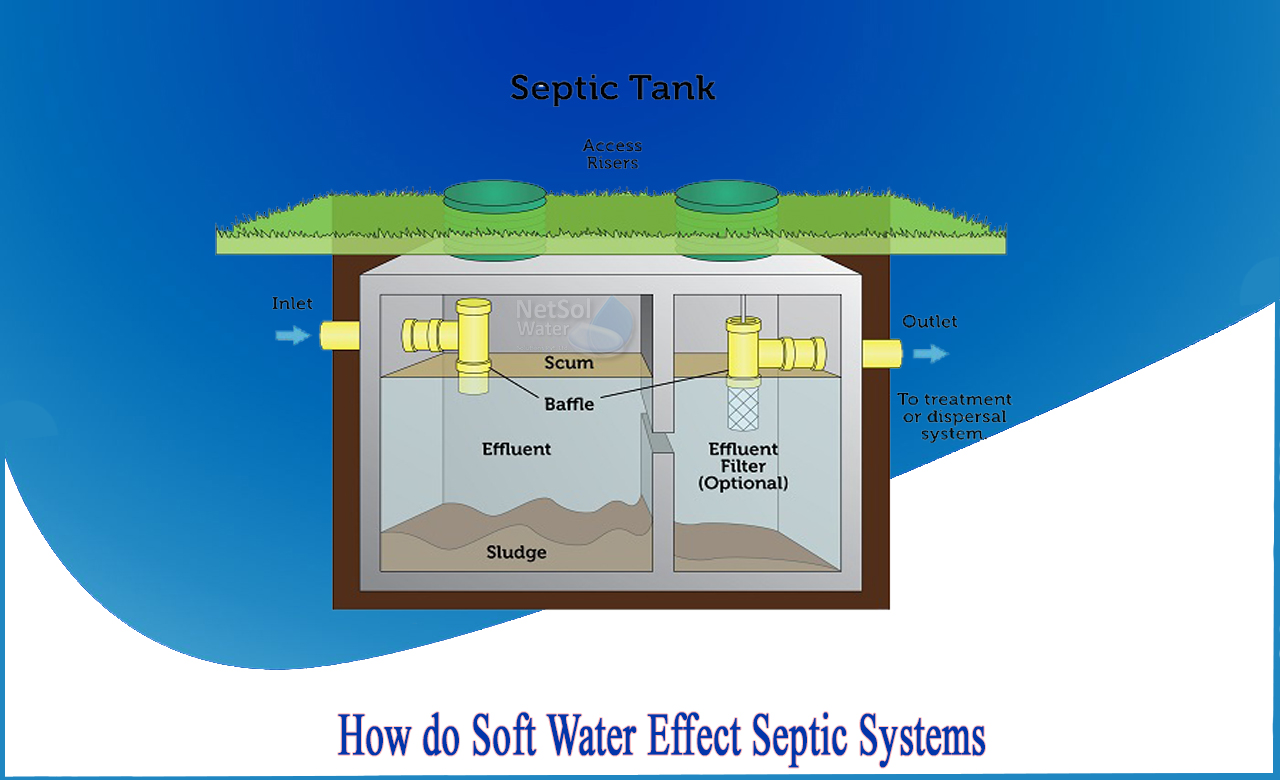Will a water softener damage a septic tank?
Studies on the relationship between a water softener and septic system have gone as far back as the 70`s, through organizations such as the National Sanitation Foundation (NSF), Water Quality Association (WQA) and Small-Scale Waste Management Project (SSWMP) at the University of Wisconsin. Research shows that not only does an efficient, well operating water softener have no negative effect on septic systems but the water softener has a potential to aid it.
Septic system
Understanding the components of a septic system is helpful in order to understand any potential effects your water softener can have on it.
A conventional septic system consists of a septic tank, a distribution box, and a drain field, all connected by pipes. Sewage flows from the house to the septic tank through pipes, where solids (sludge) reach the bottom of the tank and lighter substances float on top (sludge layer). During the septic tank treatment process, both layers are partially degraded with the help of bacteria naturally found in human excrement. Septic tanks drain water into drains as more wastewater is released from the house.
Now that you understand the basics of wastewater treatment plants, let's briefly explain the basics of water softeners so that you can better understand the relationship between wastewater treatment plants and water softeners.
How the water softener does work?
Water softeners remove the water hard minerals that can accumulate in plumbing and appliances, dry hair and skin, dirty laundry, dirty glassware, and more. Most water softeners consist of a media tank and a brine tank. The media tank contains a resin that removes annoying minerals, allowing you to distribute soft water throughout the house. The water softener's brine tank stores salt and, if necessary, adds water to dissolve the salt in the brine solution. It uses brine (salt water) to clean the resin, knocking off accumulated hardness minerals and draining them into the drain, allowing the device to remove more minerals.
Why water softeners help improve the functionality of sewage systems?
One of the myths associated with water softeners and purification systems is that sodium in softened waste reduces the effectiveness of the bacteria required for the purification system. But it is discovered that soft water can enhance the biological performance of septic tanks. The right amount of sodium in soft water supports bacterial growth and optimizes the septic tank treatment process.
Another advantage of soft water is that it uses less soap, detergent and chemicals when cleaning. By using a minimal amount of detergent, you don't have to worry about the effects of these chemicals on septic tanks.
Why efficient water softeners do not interfere with sewage treatment facilities?
The small amount of wastewater produced by the regeneration process and discharged into the septic tank can be uncomfortable. One of the problems with water softeners and sewage treatment plants is that the amount and flow of brine spills can overflow the septic tank and block the spill field.
A 2012 study commissioned by the Water Quality Research Foundation reported that brine emissions from properly operated water softeners (50 gallons per regeneration) did not show overflow. The amount of drainage was almost the same as the amount of drainage of other household water equipment.
Netsol Water is Greater Noida-based leading water & wastewater treatment plant manufacturer. We are industry's most demanding company based on client review and work quality. We are known as best commercial RO plant manufacturers, industrial RO plant manufacturer, sewage treatment plant manufacturer, Water Softener Plant Manufacturers and effluent treatment plant manufacturers. Apart from this 24x7 customer support is our USP. Call on +91-9650608473, or write us at enquiry@netsolwater.com for any support, inquiry or product-purchase related query.



